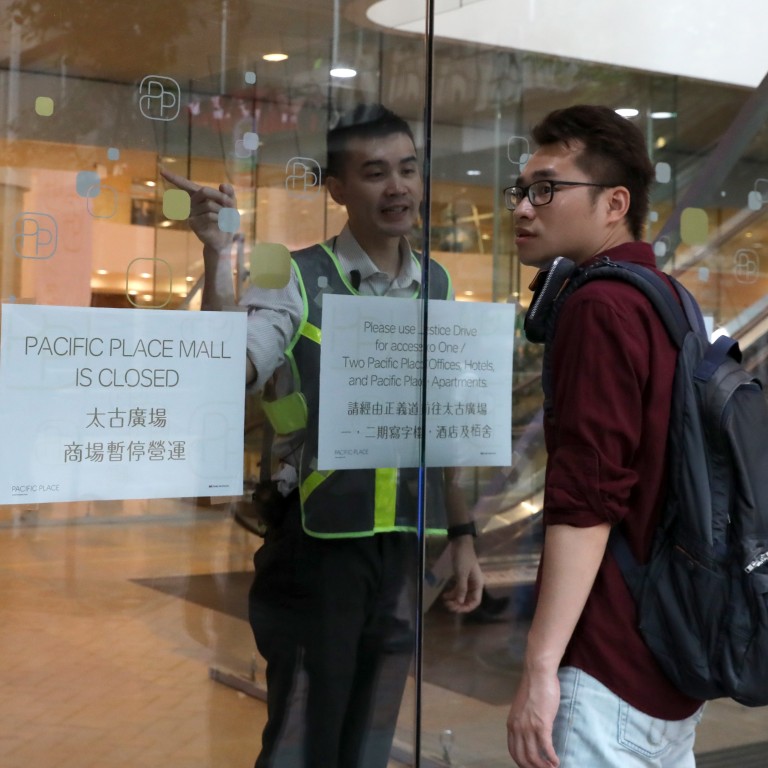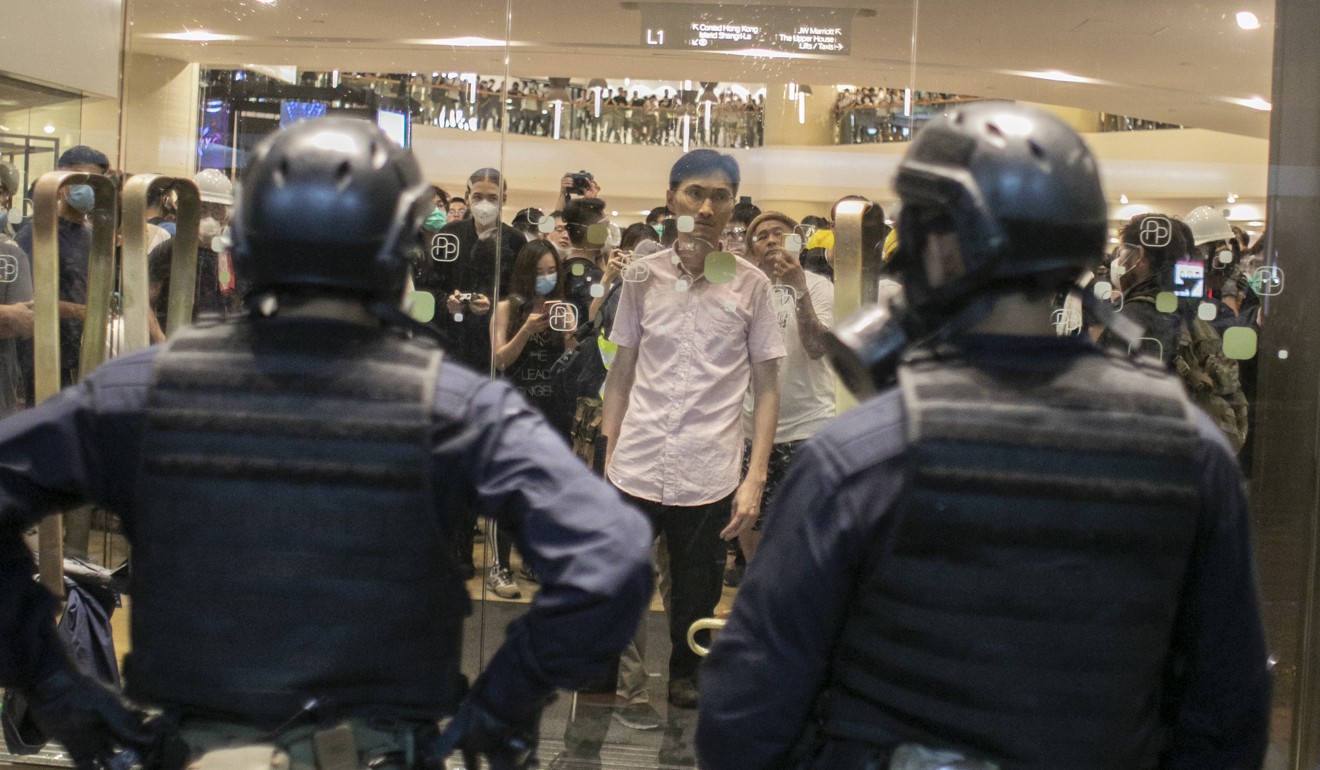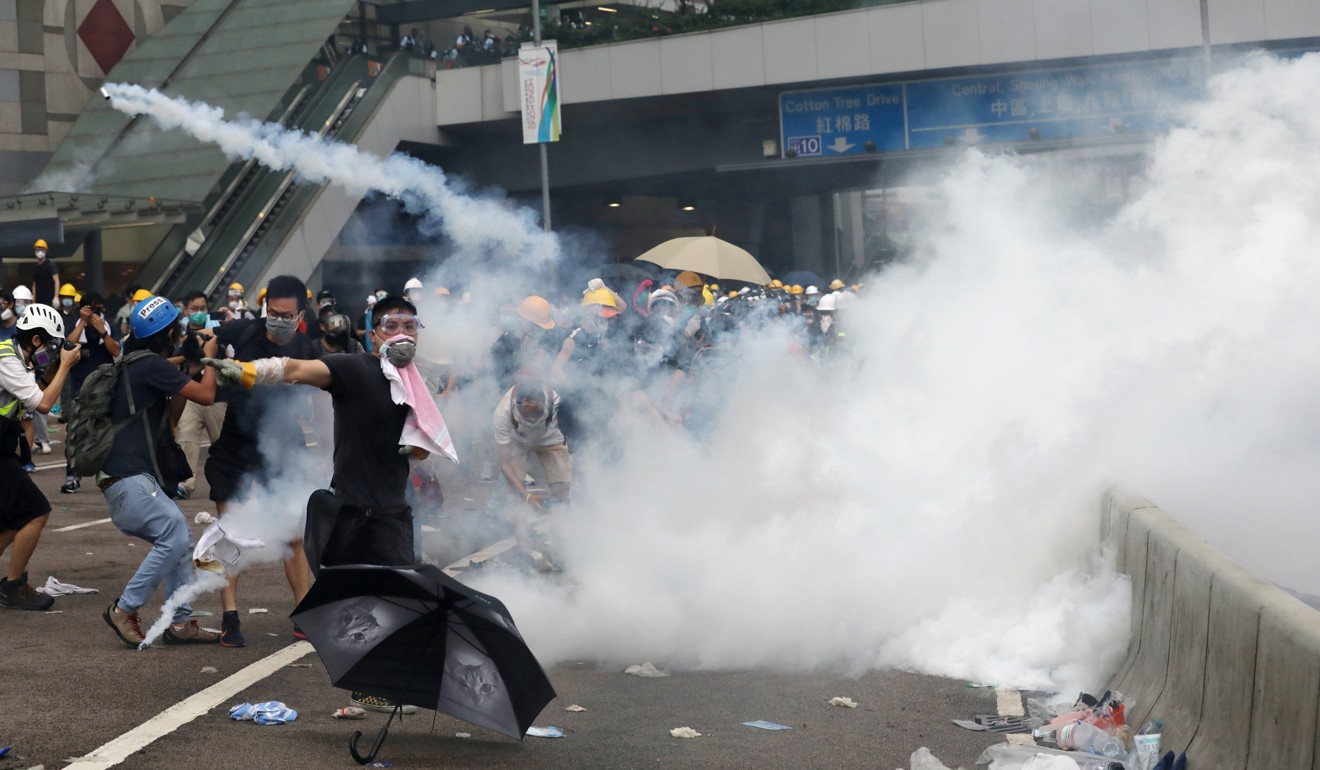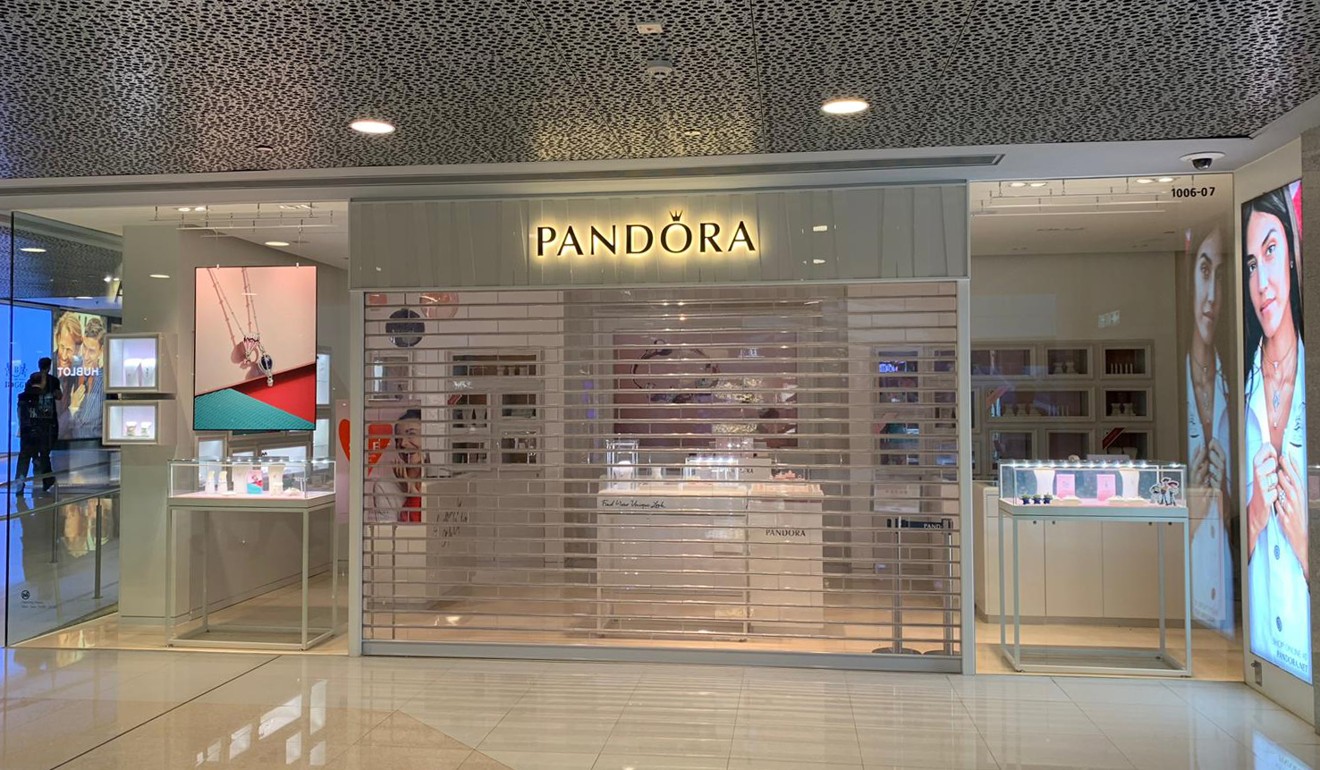
Near site of Hong Kong’s anti-extradition clashes, businesses still taking a hit
- Major Admiralty mall still closed, as civil servants told to avoid government HQ
- Shopping centres became scenes of shelter for protesters during police crackdown
Business in the heart of Hong Kong was disrupted a day after protesters decrying the government’s extradition bill clashed violently with police, with an upmarket shopping centre closed and thousands of civil servants told to stay at home.
Pacific Place, a four-level mall of about 160 stores and restaurants in Admiralty, near the protest’s epicentre at the legislature and government headquarters, was closed to shoppers on Thursday morning, with plans to gradually reopen. Its hotels and two office towers were unaffected.
Access to the area was hampered after police demanded the closure of Admiralty MTR station and urged the public to avoid the area following Wednesday’s events, which the government termed a riot. The station reopened at 2.14pm and MTR services returned to normal.
After police cracked down on the throngs with tear gas and rubber bullets, groups of protesters sought refuge in Pacific Place, and the IFC Mall about 1km away in Central.
As it happened: Hong Kong police and extradition protesters renew clashes
Announcing the closure, a Pacific Place spokeswoman said: “We apologise for any inconvenience this may cause our tenants and visitors; however, the safety of our staff, visitors and tenants is paramount.”
The mall did not close for a single day during the 79-day pro-democracy Occupy protests, which hit the same area in 2014.
At about 2.30pm, the spokeswoman said the mall would progressively resume operations in the afternoon, as safety concerns receded. She did not say if it would offer any form of compensation to tenants for the loss of business.
At the Lippo Centre office building on Queensway, the Lippo Chiuchow Restaurant remained open over the past two days, but was troubled by cancellations.
“On Wednesday, about 50 per cent of our bookings were cancelled, and about 20 per cent today,” a member of staff who gave her name as Wong said.
The government announced that thousands of civil servants were not required to go to work at the administration’s headquarters on Thursday, citing security concerns.
The latest clashes stemmed from protesters’ attempts to thwart the Legislative Council’s second reading of the extradition bill, which, if passed, would open the door to fugitive transfers to mainland China. Critics say it would leave Hongkongers at risk of unfair prosecution north of the border.
The Legco meeting was postponed on Wednesday, and again on Thursday.
At about noon, protesters were seen returning to Legco and the government headquarters.
At the nearby Admiralty Centre, more than half of the shops were closed.
The government tries to forcefully pass the bill, but students are also a bit too radical. It ends up hurting businesses like ours, and Hong Kong’s economy
Larry Kwok Hoi-keung, manager of stationery shop City Office Supplies, said the store lost 80 per cent of its business on Wednesday due to the chaos.
The shop shut its doors at 4pm that day, four hours earlier than usual, as police started firing tear gas, which got into the mall.
Kwok was disappointed with both sides in the conflict.

“The government tries to forcefully pass the bill, but students are also a bit too radical,” he said. “It ends up hurting businesses like ours, and Hong Kong’s economy.”
Villy, a shop assistant at Fiona Dry Cleaning Company who declined to give her surname, said business was down by two-thirds on Wednesday.
She said the company could not deliver clean clothes to its customers due to the protest.

But she sympathised with both sides.
“It’s part of young people’s process of growth to join these movements. They looked energetic and united,” she said. “But I think the extradition bill is necessary. The government needs to do this to plug legal loopholes.”
In Central, about five out of around 200 stores in the IFC Mall were closed as of 11am on Thursday.

Those closed included the jewellery shop Pandora and an outlet of cosmetics brand SK-II. The Apple store was expected to open at noon, two hours later than usual.
Miss Chan, a shopper from Zhuhai in Guangdong province, who had only got off a plane at 4.30am, said she did not know about Wednesday’s protest, and was disappointed at the Apple store’s late opening.
“I came here at 10am after resting for some hours in the airport, because I wanted to buy a laptop for a friend,” she said. “The delayed opening means I will have to change my travel plans and take the 2.30pm ferry back home instead of the 12.30pm one.”
Hang Seng Bank allowed staff at its headquarters in Central and Mong Kok branch, to work from home. Central-based employee Arthur Li, 23, had stayed home for the past two days.
“I am satisfied with the arrangement,” he said. “I can even watch live reports at home to keep up with the situation, which would not be so appropriate in the office. Like on Wednesday, I watched until 5 or 6 o’clock in the evening, then went out after I finished my work,” he said.
“I think it will get messy again and we will continue to work from home in the near future.”
Additional reporting by Michelle Wong


